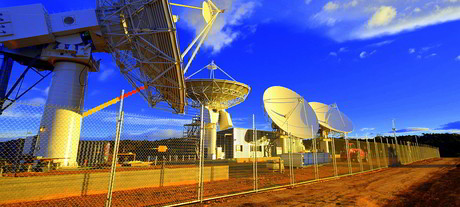ACMA reviewing licence taxes for satellite services

The ACMA is considering reducing taxes for satellite services to encourage more efficient use of the spectrum.
The Australian Communications and Media Authority (ACMA) is conducting a review of apparatus licence taxes for satellite and space-based services. The review focuses mostly on the Ka band.
There are a number of definitions of the Ka band but for the purposes of this review the ACMA defines it as 17.3 to 51.4 GHz. As part of this review, some licence tax issues relating to services outside the Ka band have also been identified for consideration.
Ka band reform proposals
The consultation paper presents the ACMA’s preliminary views on a number of reform proposals for satellite services in the Ka band. The regulator is inviting interested parties to respond to and comment on the proposals.
The ACMA engaged economic and engineering consultants Plum Consulting to review taxes for the band using opportunity cost pricing principles and investigate how taxation arrangements could be improved to better reflect the peculiar spectrum denial properties of satellite systems.
After considering Plum’s analysis, the ACMA’s preliminary view is that some of the taxes are high compared with international standards and should generally be reduced to encourage more efficient use of the spectrum.
The ACMA said that it considers these proposed taxation reductions are appropriate because there is some evidence of unutilised spectrum and no evidence of likely congestion in the near future.
Further, the ACMA anticipates that the proposed price reductions will encourage new satellite and space-based services in the Ka band and are likely to add to the more than $4 billion of GDP that is already derived from Australian space capabilities.
The main tax reform proposal involves the following tax reductions for satellite services in the 17.3 to 51.4 GHz band:
- 30% for Australia-wide and high density area (HDA) licences.
- 50% for medium density area (MDA) and low density area (LDA) licences.
- $0 tax for remote density area (RDA) licences (subject to cost recovery fees and the minimum tax of $39.18).

The ACMA also proposes amendments to:
- the Ka band tax frequency ranges — to better delineate the Ku band and the Ka band from a tax perspective;
- the tax treatment of non-geostationary orbit (NGSO) systems — to provide more consistency with geostationary orbit (GSO) systems. This proposal includes applying a 50% tax premium to NGSO services in frequencies between 17.3 and 51.4 GHz (compared with GSO services).
In terms of general reform proposals and reform proposals outside of the Ka band, the ACMA also proposes:
- the introduction of a tax incentive for earth station spectrum sharing (in all parts of the radio spectrum spectrum). This incentive offers a 30% tax reduction for co-frequency terminals (where frequencies are congruent or overlap) that are located within a radius of 500 metres;
- the removal of bespoke tax treatment for code division multiple access (CDMA) satellite systems in the UHF band (300–3000 MHz).
Issues for comment
The ACMA has invited comments on the issues set out in the consultation paper:
- Do you have other evidence about demand and/or congestion in the Ka band that could improve the ACMA’s views about the Ka band tax rates for satellite services?
- Do you have any evidence of more appropriate taxation frequency ranges (tax brackets) for the Ka band that would better support opportunity cost pricing principles?
- The proposed 50% tax premium for NGSO services is based on spectrum denial analysis of a number of scenarios in the 18 and 50 GHz bands using various elevation assumptions. Would spectrum denial analysis in other bands between 18 and 50 GHz produce results that are materially different to the analysis already undertaken?
- Do you agree with the eligibility criteria for the proposed earth station spectrum sharing incentive of a reduction in taxes of 30%?
- Do you have any evidence that would improve the ACMA’s understanding of the application of opportunity cost pricing to CDMA satellite systems in the UHF band and the proposed tax reform?
- If the ACMA proceeds with the tax reform proposals presented in this paper, are there any implementation and/or transitional issues that the ACMA should be aware of?
You can make your submission via the ACMA website.
RFUANZ report: setting the frequency for success in 2025
Last year brought a lot of internal change for RFUANZ, but the association has hit the ground...
ARCIA update: an extended event calendar for 2025
With the addition of Tasmanian events and a conference in Adelaide in September, 2025 will see...
ARCIA update: plans for 2025
ARCIA will be holding a mixture of workshop, conference and networking events in 2025, in the...





